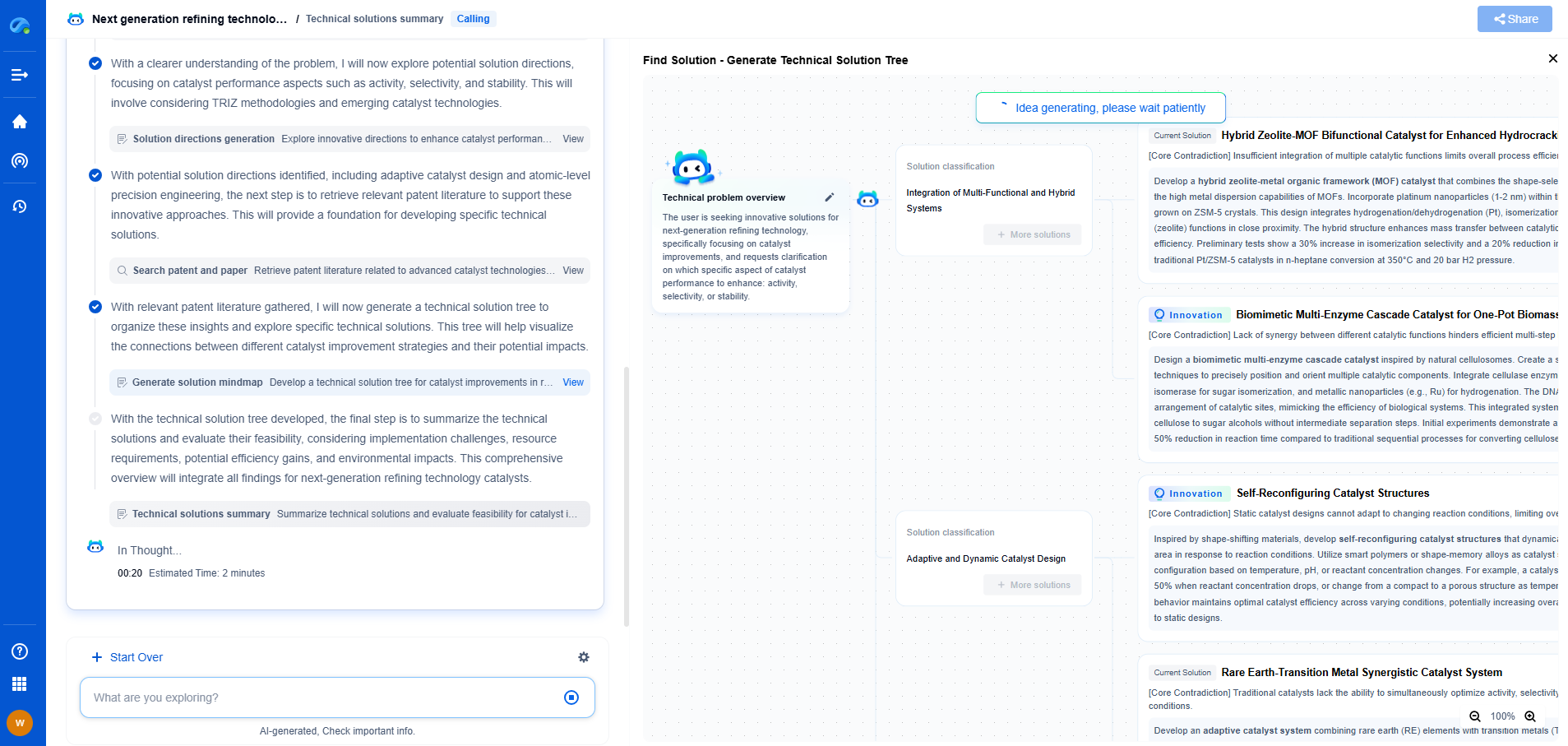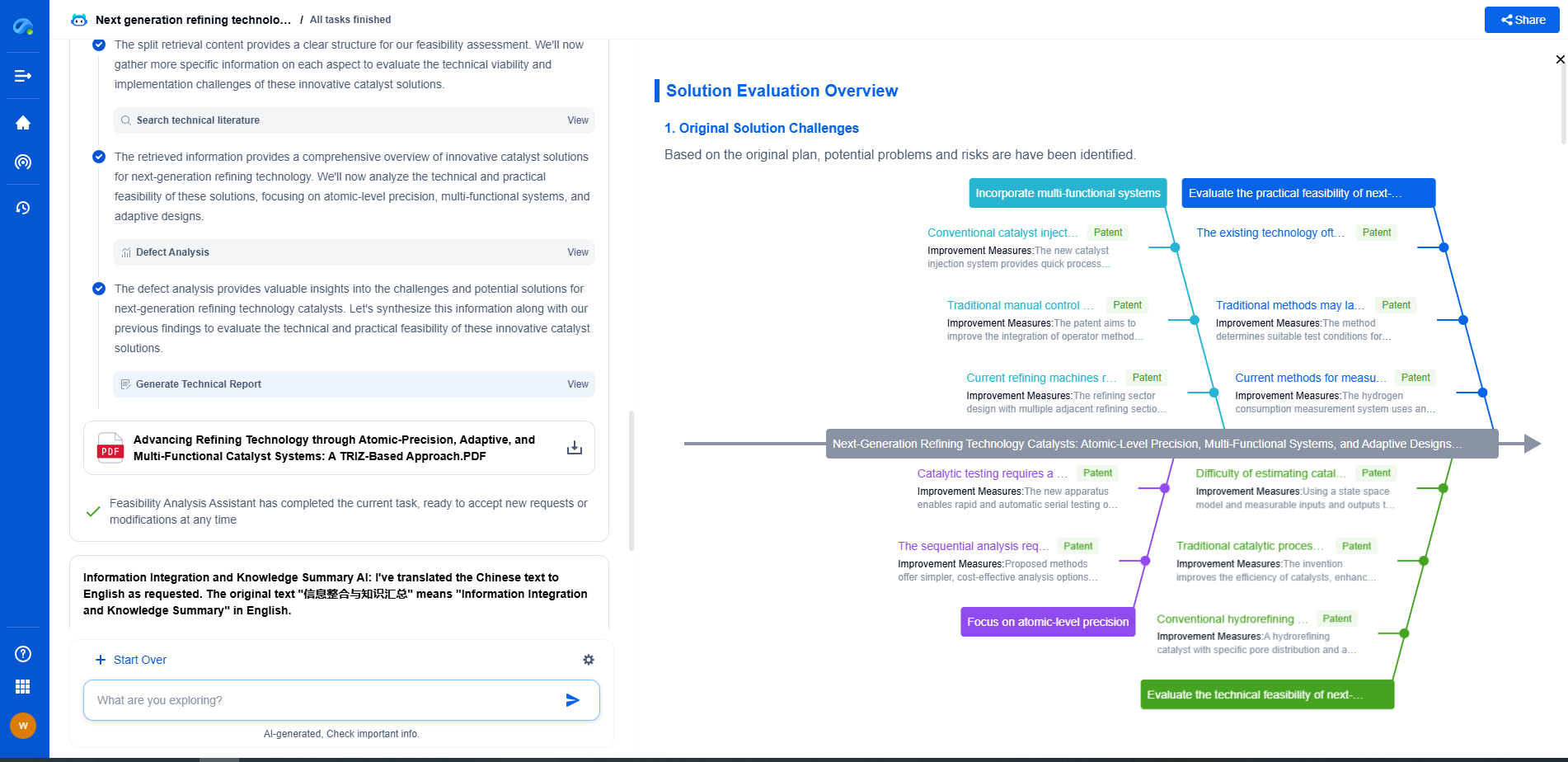How Humidity Affects Electronic Reliability and How It’s Tested
JUN 27, 2025 |
Humidity, the amount of moisture in the air, can significantly impact the reliability and performance of electronic devices. As electronic components often rely on precise electrical currents and delicate materials, any interference from environmental conditions can lead to malfunctions or even permanent damage. Understanding how humidity affects electronics and how these effects can be tested is crucial for manufacturers and users alike.
How Humidity Affects Electronic Components
Moisture Absorption and Corrosion
One of the primary ways humidity affects electronics is through moisture absorption. Many electronic components, such as circuit boards and connectors, are made from materials that can absorb moisture from the air. This absorbed moisture can lead to corrosion, especially in metal components. Corrosion can cause electrical connections to degrade, leading to intermittent failures or complete loss of functionality.
Short Circuits and Leakage Currents
High humidity levels can also result in short circuits and leakage currents. When moisture accumulates on circuit boards, it can create conductive paths that should not exist, leading to shorts between components. These unintended pathways can cause devices to malfunction or suffer from decreased performance levels. Additionally, leakage currents can occur when moisture forms a conductive path between two points, leading to energy loss and potential overheating.
Impact on Insulating Materials
Humidity can degrade the insulating properties of materials used in electronic devices. Insulators are crucial in preventing unwanted electrical currents from flowing between components. However, when these materials absorb moisture, their insulating properties diminish, increasing the risk of electrical faults and affecting the device's reliability.
Testing Electronic Reliability Under Humid Conditions
Environmental Testing Chambers
To evaluate how electronic devices withstand humid conditions, manufacturers often use environmental testing chambers. These chambers can simulate various temperature and humidity levels to mimic real-world conditions that the device might face. By subjecting electronics to controlled humid environments, manufacturers can assess their durability and identify potential failure points before the product reaches consumers.
Accelerated Life Testing
Accelerated life testing involves exposing electronic components to extreme humidity levels to observe how quickly they degrade. This type of testing helps manufacturers predict the lifespan of a product under typical usage conditions. By accelerating the aging process, companies can identify materials and designs that are more resilient to humidity-related damage, leading to more robust and reliable products.
Humidity Sensors and Monitoring
Many modern electronic devices are equipped with humidity sensors that continuously monitor environmental conditions. This proactive approach allows devices to adjust their operation or alert users when humidity levels are potentially damaging. For example, a smartphone might warn the user to avoid using the device in particularly humid conditions or automatically shut down non-essential functions to protect critical components.
Design Strategies to Mitigate Humidity Effects
Using Protective Coatings
Applying protective coatings to electronic components is a common strategy to combat humidity-related issues. These coatings, often made from materials like silicone or acrylic, form a barrier that prevents moisture from reaching sensitive parts. By shielding components from humidity, manufacturers can enhance the reliability and longevity of their products.
Sealing and Enclosures
Another effective method is to use sealed enclosures to protect electronics from humid environments. By designing devices with watertight seals and enclosures, moisture ingress can be minimized. This is especially important for devices intended for outdoor use or those that will be exposed to fluctuating environmental conditions.
Material Selection
Selecting the right materials can also play a crucial role in mitigating the effects of humidity. Using corrosion-resistant metals and moisture-resistant polymers can help ensure that electronic devices remain operational even in challenging conditions. Manufacturers continuously research and develop new materials that can withstand the rigors of humid environments.
Conclusion
Humidity is an environmental factor that can significantly impact the reliability of electronic devices. Understanding the risks and implementing effective testing and mitigation strategies are essential to ensuring long-term performance and customer satisfaction. Through careful design, material selection, and rigorous testing, manufacturers can produce electronics that withstand the challenges posed by humidity, providing users with reliable and durable products.
Empower Your Breakthroughs in Basic Electric Components with Patsnap Eureka
From resistors, capacitors, and inductors to fuses, connectors, superconductors, and nano-scale materials—basic electric elements may be the building blocks of modern electronics, but the innovation behind them is anything but simple. As device miniaturization accelerates and materials science pushes new frontiers, R&D and IP teams face increasing complexity in staying on top of technical advancements, patent activity, and competitive landscapes.
Patsnap Eureka, our intelligent AI assistant built for R&D professionals in high-tech sectors, empowers you with real-time expert-level analysis, technology roadmap exploration, and strategic mapping of core patents—all within a seamless, user-friendly interface.
🔧 Whether you’re optimizing energy storage, improving thermal resistance, or creating the next leap in circuit efficiency, Patsnap Eureka is your AI copilot for high-efficiency, high-precision R&D and IP strategy.
👉 Experience how Patsnap Eureka can revolutionize your R&D and IP strategy. Request a demo today and power up your next breakthrough.
- R&D
- Intellectual Property
- Life Sciences
- Materials
- Tech Scout
- Unparalleled Data Quality
- Higher Quality Content
- 60% Fewer Hallucinations
Browse by: Latest US Patents, China's latest patents, Technical Efficacy Thesaurus, Application Domain, Technology Topic, Popular Technical Reports.
© 2025 PatSnap. All rights reserved.Legal|Privacy policy|Modern Slavery Act Transparency Statement|Sitemap|About US| Contact US: help@patsnap.com

